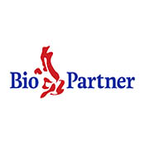Recommended Global Pharma Webinars & Conferences
Asia Pacific & Middle East
Neuropharmaceutics 2026
- Welcome Message
- About the Conference
- Sessions and Tracks
- Market Analysis Report
- Important Guidelines
- Past Conference Report
Welcome Message
Dear Participants,
On behalf of the Organizing Committee, it is our great pleasure to welcome you all to the 30th International Conference on Neuropharmacology and Neurochemistry, scheduled to be held on February 04-05, 2026, in Bali, Indonesia.
This prestigious event, Neuropharmaceutics 2026, brings together leading researchers, scientists, clinicians, academicians, and industry professionals from around the globe to exchange insights, share pioneering research, and discuss the latest advancements in neuropharmacology, neurochemistry, and neurotherapeutic innovations.
The conference serves as a dynamic platform to foster collaboration and inspire innovation through keynote sessions, oral and poster presentations, interactive discussions, and networking opportunities. Together, we aim to explore emerging trends, novel drug development strategies, and the evolving landscape of neurological therapeutics.
We are delighted to host this event in the beautiful city of Bali, known for its rich culture and scenic beauty. We hope that Neuropharmaceutics 2026 will not only expand your scientific knowledge but also create lasting professional connections and memorable experiences.
We warmly welcome you to Neuropharmaceutics 2026 and look forward to your valuable participation in making this conference a grand success.
Warm regards,
Organizing Committee
30th International Conference on Neuropharmacology and Neurochemistry
February 04-05, 2026 | Bali, Indonesia
About the Conference
The 30th International Conference on Neuropharmacology and Neurochemistry (Neuropharmaceutics 2026) will be held on February 04-05, 2026, in Bali, Indonesia. This global event aims to bring together leading academicians, researchers, neurologists, psychiatrists, pharmacologists, and industry professionals to share their latest findings, innovations, and advancements in the fields of neuropharmacology, neurochemistry, and neuroscience.
Neuropharmaceutics 2026 serves as an international platform for discussing new therapeutic strategies, neurochemical mechanisms, drug delivery systems, and emerging technologies shaping the future of neurological and psychiatric treatment. The conference will feature keynote lectures, oral and poster presentations, interactive panel discussions, and workshops designed to foster collaboration and knowledge exchange among experts from diverse backgrounds.
The main objective of this meeting is to explore how cutting-edge research and modern pharmacological approaches can be integrated to better understand brain function, neurodegenerative disorders, and mental health conditions. Participants will gain insights into translational neuroscience, biomarker discovery, neuroimmunology, synaptic transmission, and novel drug design.
Set against the serene backdrop of Bali, Indonesia, this conference also offers an excellent opportunity for networking, professional development, and cultural exchange. Whether you are a researcher, clinician, or industry professional, Neuropharmaceutics 2026 promises to be an inspiring experience that fuels scientific collaboration and innovation in the neurological sciences.
The 30th International Conference on Neuropharmacology and Neurochemistry offers a unique opportunity for researchers, clinicians, academicians, and industry leaders to come together and share their expertise in the rapidly evolving fields of neuropharmacology and neurochemistry.
By attending Neuropharmaceutics 2026, participants will:
- Gain valuable insights into the latest advancements in neurological drug development, molecular neuroscience, and therapeutic innovations.
- Engage with world-renowned experts through keynote lectures, plenary sessions, and interactive discussions.
- Showcase research findings and receive constructive feedback from peers and professionals.
- Network with global leaders in academia, research, and industry to foster new collaborations and partnerships.
- Discover emerging technologies and novel approaches that are transforming neuroscience, neurochemistry, and clinical pharmacology.
- Enhance professional growth by learning from cutting-edge case studies and translational research breakthroughs.
- Neurologists and Neuroscientists
- Psychiatrists and Psychologists
- Neuropharmacologists and Neurochemists
- Pharmaceutical and Biotechnology Researchers
- Clinical Researchers and Healthcare Professionals
- Academicians and University Faculty Members
- Toxicologists and Molecular Biologists
- Biomedical and Pharmaceutical Scientists
- Students and Young Researchers in Neuroscience and Pharmacology
- Industry Experts, Business Entrepreneurs, and R&D Professionals
- Representatives from Pharmaceutical and Clinical Research Organizations
- Policy Makers and Regulatory Professionals
Sessions and Tracks
Track 01: Molecular Mechanisms in Neuropharmacology
The study of molecular mechanisms in neuropharmacology focuses on the intricate biochemical and cellular processes that control neural activity and influence the pharmacological response of the brain. It explores how neurotransmitter receptors, ion channels, and intracellular signaling pathways govern synaptic communication and plasticity. By understanding these molecular foundations, researchers can design drugs that target specific neural processes to treat neurological and psychiatric disorders such as depression, Alzheimer’s disease, Parkinson’s disease, and schizophrenia. This area of research emphasizes the pharmacodynamics of receptor function, receptor desensitization, and the modulation of multiple signaling networks, providing insight into therapeutic target identification. Modern techniques such as receptor mapping, molecular docking, and computational modeling are used to predict ligand-receptor interactions and to assess the neurochemical basis of drug efficacy and safety. Investigations into neuroreceptor diversity and molecular signaling cascades provide a foundation for next-generation therapies that aim to restore neural function and minimize adverse effects. By linking fundamental neurochemistry with applied pharmacology, this field encourages the development of innovative treatments that are selective, effective, and safe for patients with complex neurological conditions.
Track 02: Neurochemical Signaling and Synaptic Transmission
Neurochemical signaling and synaptic transmission form the core of how the nervous system communicates and processes information. This area examines how neurotransmitters are synthesized, stored, released, and reabsorbed, ensuring the proper transmission of signals between neurons. It highlights the balance between excitatory and inhibitory neurotransmitters such as glutamate, gamma-aminobutyric acid, dopamine, serotonin, and acetylcholine, which collectively maintain the functional stability of the brain. Recent research also emphasizes the role of neuromodulators, including endocannabinoids and neuropeptides, which fine-tune synaptic activity and influence cognition, emotion, and behavior. The neurochemical processes that govern synaptic communication are affected in numerous neurological and psychiatric disorders, and pharmacological modulation of these pathways provides therapeutic potential. Advanced techniques such as optogenetics, patch-clamp electrophysiology, and imaging tools are revolutionizing the understanding of how drugs alter synaptic function at the molecular level. The insights gained from studying neurochemical signaling are critical for designing drugs that can restore neural balance, improve cognitive performance, and prevent synaptic degeneration, offering a deeper understanding of the chemical language of the brain.
Track 03: Neuropharmacology of Neurodegenerative Disorders
The neuropharmacology of neurodegenerative disorders explores the biochemical and pharmacological strategies used to understand and treat progressive neurological diseases such as Alzheimer’s, Parkinson’s, Huntington’s, and amyotrophic lateral sclerosis. It investigates how disruptions in neurotransmitter systems, oxidative stress, mitochondrial dysfunction, and protein misfolding contribute to neuronal death and cognitive decline. By understanding these underlying mechanisms, scientists can design therapies that protect neurons, slow disease progression, and enhance brain repair. Current therapeutic approaches include dopamine agonists, cholinesterase inhibitors, and glutamate receptor modulators, along with experimental treatments that target amyloid plaques, tau protein aggregation, and neuroinflammatory responses. The exploration of neurotrophic factors and neuroprotective molecules has also opened new avenues for regenerative medicine. Advancements in gene therapy, stem cell biology, and personalized pharmacology are transforming how neurodegenerative conditions are treated, aiming to provide precision-based interventions. The integration of neurochemical and pharmacological knowledge offers hope for identifying biomarkers that predict disease onset and for developing drugs that not only alleviate symptoms but also modify disease progression, improving the quality of life for patients worldwide.
Track 04: Neurochemistry of Psychiatric and Mood Disorders
The neurochemistry of psychiatric and mood disorders examines the alterations in brain chemistry that lead to conditions such as depression, anxiety, bipolar disorder, and schizophrenia. This field focuses on how imbalances in neurotransmitters, including serotonin, dopamine, norepinephrine, and glutamate, disrupt emotional regulation, motivation, and cognition. The classical monoamine hypothesis continues to serve as a foundation, but recent research expands the understanding of psychiatric disorders by integrating factors such as neuroinflammation, oxidative stress, and the gut-brain axis. Advances in neurochemical profiling and imaging technologies allow scientists to visualize neurotransmitter fluctuations and assess the biochemical effects of therapeutic drugs. Pharmacological interventions such as antidepressants, antipsychotics, and mood stabilizers work by modulating these neurochemical systems to restore balance and enhance mental well-being. However, challenges such as treatment resistance, side effects, and variability in individual responses highlight the need for personalized pharmacotherapy based on neurochemical biomarkers. This area of research bridges neuroscience and clinical pharmacology, aiming to create more targeted, effective, and safer therapies that improve mental health outcomes and contribute to understanding the biochemical roots of human emotion and behavior.
Track 05: Blood-Brain Barrier Pharmacology and Drug Delivery
The pharmacology of the blood-brain barrier (BBB) plays a pivotal role in determining the success of drugs designed for central nervous system disorders. The BBB acts as a highly selective barrier that shields the brain from toxins while limiting the entry of therapeutic agents. Understanding its structure, function, and transport mechanisms is essential for designing drugs capable of penetrating the central nervous system. Research in this area investigates the physicochemical properties that influence BBB permeability, such as lipid solubility, molecular weight, and interactions with efflux transporters like P-glycoprotein. Scientists are developing advanced drug delivery systems including nanoparticles, liposomes, and receptor-mediated transport technologies that can bypass or temporarily modulate the BBB. These innovations enhance drug bioavailability while minimizing systemic toxicity. The integration of nanotechnology, molecular pharmacology, and neurochemistry is transforming the landscape of drug development for brain diseases, paving the way for precision-targeted therapeutics that can effectively reach neural tissues. By overcoming one of the most significant barriers in neuroscience, this area of study is opening new possibilities for treating conditions that were once considered inaccessible to pharmacological intervention.
Track 06: Neurotransmitter Receptors and Signal Transduction
Understanding neurotransmitter receptors and their associated signal transduction mechanisms is fundamental to the field of neuropharmacology. This area focuses on how different classes of receptors, including ionotropic and metabotropic types, translate chemical signals into electrical and biochemical responses within neurons. Neurotransmitter receptors are crucial for maintaining synaptic communication, regulating neuronal excitability, and influencing learning, memory, and behavior. Research in this area explores receptor-ligand interactions, receptor desensitization, and receptor cross-talk that occurs in complex neural circuits. Special attention is given to G-protein coupled receptors, ligand-gated ion channels, and tyrosine kinase receptors, all of which are prime drug targets for neurological and psychiatric conditions. Studies also investigate receptor plasticity and how prolonged exposure to drugs or stress alters receptor density and signaling efficiency. With advancements in molecular imaging, cryo-electron microscopy, and computational pharmacology, the structure and function of neurotransmitter receptors are being elucidated with unprecedented precision. This knowledge drives the rational design of receptor-specific drugs that can correct dysfunctional signaling, restore neural equilibrium, and minimize side effects. The integration of receptor biology with neurochemical principles contributes to the development of novel therapeutics for mood disorders, epilepsy, addiction, and neurodegenerative diseases.
Track 07: Neuropharmacological Approaches to Pain and Analgesia
Pain is a complex physiological and psychological phenomenon regulated by intricate neurochemical and neuropharmacological mechanisms. This area of study explores how drugs influence pain perception and modulation at the molecular, cellular, and systemic levels. Research emphasizes the roles of neurotransmitters such as substance P, glutamate, and endorphins in pain transmission, as well as the function of receptors like opioid, cannabinoid, and NMDA receptors in analgesic response. Understanding how pain pathways are altered in chronic conditions, including neuropathic and inflammatory pain, is essential for designing effective treatments. Pharmacological agents such as opioids, nonsteroidal anti-inflammatory drugs, anticonvulsants, and antidepressants act on different components of the pain matrix to alleviate suffering. However, challenges such as tolerance, dependence, and side effects drive the search for safer and more targeted alternatives. Emerging therapies include selective ion channel blockers, monoclonal antibodies against pain mediators, and neuropeptide modulators. The integration of neurochemical and pharmacological insights is leading to the development of precision analgesics that minimize adverse outcomes while improving patient comfort and quality of life. By decoding the molecular basis of pain, this field aims to transform pain management strategies and reduce the global burden of chronic pain disorders.
Track 08: Neuroinflammation and Pharmacological Modulation
Neuroinflammation plays a dual role in brain health—serving as both a protective response and a pathological process when uncontrolled. This topic examines the molecular and cellular mechanisms by which inflammation influences neurodegeneration, neuronal survival, and cognitive decline. It explores the role of microglia, astrocytes, cytokines, and chemokines in initiating and propagating inflammatory responses within the central nervous system. Chronic neuroinflammation is a hallmark of several neurological diseases, including Alzheimer’s, Parkinson’s, multiple sclerosis, and traumatic brain injury. Pharmacological modulation of inflammatory pathways offers promising therapeutic potential. Drugs that target cytokine signaling, inhibit microglial activation, or modulate oxidative stress can protect neurons and preserve brain function. Recent research focuses on nonsteroidal anti-inflammatory drugs, corticosteroids, and novel anti-inflammatory compounds derived from natural products and biotechnology. Advances in neuroimmunology and neurochemistry have revealed how immune and neural systems communicate through shared signaling molecules, influencing both mood and cognition. This understanding paves the way for immunopharmacological strategies that can restore neurochemical balance and promote recovery. By targeting neuroinflammation, researchers hope to delay or prevent the progression of neurodegenerative diseases and improve therapeutic outcomes in a wide range of brain disorders.
Track 09: Neuropharmacology of Addiction and Substance Abuse
Addiction is a chronic neuropsychiatric condition characterized by compulsive drug-seeking behavior and neurochemical alterations in the brain’s reward circuitry. The study of addiction neuropharmacology focuses on how substances such as opioids, cocaine, nicotine, and alcohol affect neurotransmitter systems and neuronal communication. It investigates the role of dopamine in the mesolimbic reward pathway and how repeated drug exposure leads to neuroadaptations that sustain addictive behavior. Research explores molecular targets including dopamine transporters, opioid receptors, and glutamate signaling, all of which are critical for understanding the neurochemical basis of craving and dependence. The development of pharmacotherapies aims to normalize neurotransmission and reduce withdrawal symptoms through agents such as methadone, buprenorphine, and naltrexone. Novel approaches involve vaccines against addictive drugs, modulation of neuropeptides like orexin, and the use of neuromodulation techniques to alter brain circuits associated with reward and self-control. The integration of behavioral neuroscience and neurochemistry provides insights into relapse prevention and personalized addiction treatment. By decoding the neuropharmacological mechanisms underlying substance abuse, this field contributes to public health strategies that address addiction from both therapeutic and preventive perspectives.
Track 10: Neuropharmacology of Cognitive Function and Memory
Cognitive function and memory depend on a delicate interplay of neurotransmitters, receptors, and intracellular signaling mechanisms. Research in this area focuses on how pharmacological agents influence learning, memory consolidation, and attention. Neurotransmitters such as acetylcholine, glutamate, and dopamine are central to cognitive processes, and disruptions in their signaling are linked to disorders including Alzheimer’s disease, dementia, and attention-deficit conditions. Pharmacological interventions targeting these systems aim to enhance synaptic plasticity, improve neuronal communication, and prevent cognitive decline. Drugs such as cholinesterase inhibitors, NMDA receptor modulators, and nootropic agents are being studied for their potential to enhance brain function and delay the progression of cognitive impairment. Recent discoveries in neurochemistry reveal how neurotrophic factors and synaptic remodeling contribute to memory formation at the molecular level. The use of neuroimaging, electrophysiological mapping, and computational models helps elucidate how memory circuits respond to pharmacological modulation. By merging neurochemical insights with drug development, this field promotes innovative approaches for cognitive enhancement, brain repair, and the treatment of memory-related disorders, supporting mental agility and lifelong brain health.
Track 11: Neurochemical Basis of Epilepsy and Anticonvulsant Pharmacology
Epilepsy is a complex neurological disorder characterized by recurrent seizures caused by abnormal electrical discharges in the brain. Understanding its neurochemical basis is essential for the development of effective anticonvulsant therapies. This area of study investigates the imbalance between excitatory and inhibitory neurotransmission, primarily involving glutamate and gamma-aminobutyric acid. Disruptions in ion channel function, receptor sensitivity, and neurotransmitter metabolism contribute to seizure generation and propagation. Pharmacological treatment strategies aim to stabilize neuronal membranes, enhance inhibitory signaling, or reduce excitatory neurotransmission. Traditional drugs such as valproate, carbamazepine, and phenytoin have been effective, but modern research focuses on newer compounds that target specific molecular pathways with fewer side effects. Recent advancements also include neurostimulation techniques and gene-based approaches designed to correct dysfunctional ion channels. The neurochemical study of epilepsy extends beyond seizure control to address associated cognitive and psychiatric symptoms, emphasizing a holistic approach to patient care. By integrating neurochemistry, pharmacology, and molecular neuroscience, researchers continue to identify novel therapeutic targets that can transform epilepsy management and improve the quality of life for affected individuals.
Track 12: Neuropharmacology of Neuroplasticity and Neural Regeneration
Neuroplasticity, the brain’s ability to reorganize itself by forming new neural connections, is a central focus in modern neuropharmacology. This field explores how pharmacological agents influence neural regeneration, synaptic remodeling, and recovery following injury or disease. Neuroplasticity underlies learning, memory, and adaptation, and understanding its molecular mechanisms offers insights into the treatment of neurodegenerative disorders and brain trauma. Neurochemical processes such as neurotransmitter modulation, receptor activation, and growth factor signaling are critical for facilitating plasticity. Drugs that enhance neurotrophic factors, such as brain-derived neurotrophic factor and nerve growth factor, show promise in promoting synaptic repair and neuronal survival. Pharmacological stimulation of neurogenesis in specific brain regions, such as the hippocampus, is being explored to counteract cognitive decline and mental illness. Furthermore, research into the role of glutamate and calcium signaling provides strategies to optimize synaptic efficacy while preventing excitotoxic damage. By combining neurochemical knowledge with pharmacological innovation, this area seeks to harness the brain’s innate regenerative capacity, paving the way for recovery-oriented treatments in stroke, spinal cord injury, and neurodegeneration.
Track 13: Neurochemistry of Neuroendocrine Regulation
The neurochemical regulation of endocrine function forms the foundation of the brain–body connection. This field investigates how neurotransmitters, neuropeptides, and hormones interact to control physiological processes such as stress response, metabolism, reproduction, and mood. The hypothalamic–pituitary axis serves as the central hub for neuroendocrine communication, translating neural signals into hormonal actions that maintain homeostasis. Neurotransmitters such as dopamine, serotonin, and gamma-aminobutyric acid modulate hormone secretion and influence neuroendocrine balance. Disruptions in these chemical pathways can lead to disorders such as depression, obesity, infertility, and chronic stress. Pharmacological interventions targeting neuroendocrine systems have advanced the treatment of hormonal imbalances, psychiatric disorders, and neurodegenerative diseases. The study of neurochemical feedback mechanisms also provides insights into circadian rhythms, appetite regulation, and emotional control. Modern neuroendocrinology integrates molecular biology, pharmacology, and biochemistry to uncover how brain chemistry governs hormonal activity. Understanding this dynamic interplay enables the development of drugs that restore hormonal equilibrium while improving mental and physical well-being. This area continues to evolve as researchers identify novel neurochemical mediators linking brain activity with systemic health.
Track 14: Neuropharmacology of Neurodevelopmental and Autism Spectrum Disorders
Neurodevelopmental disorders, including autism spectrum disorder, attention-deficit hyperactivity disorder, and intellectual disability, are increasingly understood through the lens of neuropharmacology and neurochemistry. These conditions involve disruptions in synaptic signaling, neurotransmitter metabolism, and neuronal connectivity during brain development. Neurochemical imbalances in glutamate, gamma-aminobutyric acid, and serotonin systems contribute to the behavioral and cognitive symptoms associated with these disorders. Pharmacological interventions aim to correct these biochemical irregularities by modulating neurotransmitter pathways and enhancing synaptic function. The use of selective serotonin reuptake inhibitors, stimulants, and atypical antipsychotics has demonstrated clinical benefits, although precision-targeted therapies are needed to minimize adverse effects. Advances in genetic and molecular research are identifying specific biochemical pathways associated with autism spectrum disorder, leading to the development of new treatment strategies. Environmental and epigenetic influences on neurochemistry are also gaining attention, as they shape early brain development and susceptibility to neurodevelopmental conditions. By integrating neurochemical and pharmacological approaches, this field seeks to create interventions that not only manage symptoms but also promote neural connectivity and developmental progress, improving outcomes for affected individuals and families.
Track 15: Computational and Systems Neuropharmacology
Computational and systems neuropharmacology represents a rapidly growing area that integrates computational modeling, data analysis, and network neuroscience to understand how drugs interact with complex brain systems. This discipline uses mathematical and computational tools to simulate molecular interactions, receptor binding, and neural network behavior under different pharmacological conditions. It enables researchers to predict drug efficacy, optimize dosing, and minimize side effects through virtual experiments before clinical testing. The systems approach connects molecular pharmacology to large-scale brain dynamics, providing a holistic understanding of how chemical modulation influences cognition and behavior. Machine learning and artificial intelligence are increasingly being used to analyze large datasets derived from neuroimaging, genomics, and pharmacological screening, revealing patterns that guide drug discovery. Computational methods also facilitate the identification of novel drug targets by modeling receptor conformations and ligand interactions. Through the integration of bioinformatics, neurochemistry, and pharmacodynamics, computational neuropharmacology accelerates the translation of theoretical knowledge into practical therapies. This emerging discipline bridges experimental neuroscience and clinical pharmacology, offering a powerful framework for personalized medicine and precision drug design in neurological and psychiatric disorders.
Track 16: Artificial Intelligence in Neuropharmacological Drug Discovery
Artificial intelligence is revolutionizing neuropharmacology by accelerating the discovery and development of novel therapeutics for neurological disorders. Advanced algorithms analyze vast datasets of neurochemical compounds, brain imaging, and molecular interactions to predict the efficacy and safety of new drugs. This approach minimizes traditional trial-and-error methods, reducing time and cost in preclinical and clinical phases. AI tools help identify new drug targets, optimize dosage levels, and personalize treatment strategies for conditions like Parkinson’s disease, depression, and epilepsy. Through predictive modeling and virtual screening, AI enhances the precision of neurochemical interventions, ensuring faster translation from lab research to patient application. The integration of AI-driven analytics in neuropharmacology not only improves understanding of brain chemistry but also paves the way for intelligent therapeutics and adaptive neurochemical treatments.
Track 17: Machine Learning Models in Neurochemical Data Analysis
Machine learning has become an essential tool for decoding the complex biochemical signals within the brain. By analyzing neurochemical data from imaging, genomics, and metabolomics, machine learning algorithms uncover patterns that are often invisible to conventional statistical methods. These models can predict how different neurotransmitters interact, how drugs influence brain chemistry, and how neurochemical imbalances contribute to disorders like Alzheimer’s and schizophrenia. Machine learning supports neuropharmacologists in designing targeted compounds that regulate specific receptor activities. It also aids in clinical diagnosis by linking biochemical profiles with behavioral or cognitive symptoms. As computational models become more sophisticated, machine learning continues to refine our understanding of brain function at the molecular level, leading to highly accurate neurochemical diagnostics and personalized pharmacological interventions.
Track 18: Neuroinformatics and Computational Neuropharmacology
The emerging field of neuroinformatics combines data science, computational biology, and pharmacology to create comprehensive databases of neurochemical and neurological information. By organizing massive datasets related to neurotransmitters, receptor pathways, and drug responses, neuroinformatics facilitates faster hypothesis generation and experimental validation. Computational neuropharmacology uses simulation models to predict how neurochemical agents affect neuronal networks and behavior. These simulations allow researchers to virtually test drug mechanisms, reducing the reliance on animal studies and early human trials. With cloud-based platforms and data-sharing systems, neuroinformatics promotes global collaboration among neuroscientists, chemists, and pharmacologists. The fusion of informatics and pharmacology represents a powerful step toward understanding the brain as a dynamic chemical system that can be mapped, modeled, and modified with precision.
Track 19: Digital Biomarkers and Neurochemical Monitoring Technologies
Digital biomarkers are transforming the way neurochemical processes are monitored and understood in clinical and research settings. These biomarkers are derived from wearable sensors, brain imaging, and digital platforms that track physiological and neurochemical changes in real time. They enable continuous observation of neurotransmitter fluctuations, neural activity, and behavioral responses to pharmacological treatments. Using advanced analytics and digital health tools, researchers can personalize neuropharmacological therapies and monitor treatment efficacy remotely. Digital biomarkers also assist in early detection of neurodegenerative diseases by identifying subtle chemical changes long before clinical symptoms appear. This digital transformation in neurochemistry supports the development of proactive, technology-driven approaches to brain health and drug response evaluation.
Track 20: Integrating Neurochemistry with Computational Brain Modeling
Computational brain modeling integrates data from neurochemistry, pharmacology, and artificial intelligence to simulate neural activity and predict chemical responses. These models replicate how neurotransmitters, enzymes, and receptor systems function across various brain regions. By combining real biological data with digital simulations, scientists can visualize how drugs interact with specific neural circuits, improving the design of treatments for neurological and psychiatric disorders. Computational modeling provides valuable insights into synaptic transmission, receptor binding, and metabolic pathways. It supports precision neuropharmacology by identifying the most effective molecular structures and minimizing adverse effects. This fusion of computational neuroscience and neurochemistry enables a deeper understanding of brain mechanisms and enhances drug development efficiency.
Track 21: Precision Neuropharmacology through Artificial Intelligence and Genomic Profiling
Precision neuropharmacology is transforming the treatment of neurological diseases by combining artificial intelligence with genomic and neurochemical profiling. Advanced AI systems analyze an individual’s genetic code, neurotransmitter levels, and drug response patterns to design highly personalized therapies. This integration allows scientists to predict how patients will react to specific neuropharmacological compounds and helps minimize side effects. Genomic-guided AI algorithms reveal molecular variations in receptor structures and enzyme pathways, offering insights into why certain drugs are effective for some individuals but not others. The combination of neurochemistry, AI, and genomics provides a revolutionary framework for tailoring interventions in disorders such as depression, schizophrenia, and multiple sclerosis. This approach signifies a new era of intelligent pharmacology driven by biological precision and computational prediction.
Track 22: Virtual Drug Screening and Molecular Docking in Neuropharmacology
Virtual drug screening and molecular docking technologies are accelerating drug discovery in neuropharmacology by allowing rapid, computer-based testing of compound interactions with neurochemical receptors. These digital simulations predict the binding affinity and stability of molecules with target proteins in the brain, reducing the need for extensive laboratory experiments. Using artificial intelligence and molecular modeling, researchers can screen thousands of potential compounds in a fraction of the time required by traditional methods. This approach supports the development of drugs with enhanced selectivity, reduced toxicity, and improved efficacy for neurological disorders. The virtual drug design process also integrates neurochemical pathway data to understand the impact of compounds on neurotransmission and metabolism. As computational tools evolve, virtual screening continues to enhance innovation in neuropharmacological research and chemical optimization.
Track 23: Neuroimaging Analytics and Computational Mapping of Brain Chemistry
Advanced neuroimaging technologies, when integrated with computational analytics, are unlocking deeper insights into the neurochemical processes of the brain. Functional magnetic resonance imaging (fMRI), positron emission tomography (PET), and magnetic resonance spectroscopy (MRS) now provide high-resolution maps of neurotransmitter activity and drug distribution. Artificial intelligence enhances these imaging techniques by automating image interpretation and correlating neurochemical changes with behavioral and cognitive outcomes. Computational imaging tools allow precise monitoring of how pharmacological agents alter brain chemistry in real time. These insights are invaluable in developing drugs that target specific brain regions with minimal side effects. The combination of neuroimaging and data analytics marks a significant step toward understanding the brain’s dynamic chemical environment and optimizing therapeutic strategies.
Track 24: Brain-Computer Interfaces and Neurochemical Modulation
Brain-computer interface (BCI) technology is emerging as a groundbreaking field in neuropharmacology and neurochemistry. BCIs enable direct communication between the brain and external devices, allowing scientists to monitor neural activity and chemical signaling patterns in real time. Integrating this technology with pharmacological research enhances understanding of how neurochemical changes influence cognitive function, emotion, and behavior. BCIs are now being used to evaluate the effects of drugs on neuronal communication and to support patients with motor impairments or neurological damage. Through artificial intelligence and neurofeedback, BCIs can also adjust stimulation and drug delivery in adaptive ways. This convergence of neurochemistry, pharmacology, and digital technology introduces a new paradigm for brain regulation and therapeutic innovation.
Track 25: Neurochemical Biosensors and Real-Time Brain Monitoring
The development of neurochemical biosensors is transforming the monitoring of brain activity and drug responses. These miniature devices detect fluctuations in neurotransmitter concentrations, providing real-time feedback on neurochemical states during pharmacological interventions. AI-enhanced biosensors interpret complex data patterns to inform clinicians about drug efficacy, metabolic reactions, and brain health. The integration of wireless biosensing with wearable neurotechnology allows continuous patient monitoring outside clinical settings. This real-time neurochemical tracking has significant potential for personalized medicine, supporting early diagnosis and adaptive therapy adjustments. As biosensor sensitivity and computational power increase, they are set to become indispensable tools in neuropharmacological research and treatment.
Track 26: Neurochemical Big Data and Cloud-Based Pharmacology Platforms
The exponential growth of neurochemical and pharmacological data has led to the rise of big data analytics in neuroscience. Cloud-based platforms now integrate experimental, clinical, and genomic information into unified databases accessible worldwide. Researchers employ artificial intelligence and statistical models to analyze massive datasets, identifying patterns in drug responses, chemical pathways, and patient outcomes. This global data integration accelerates collaboration and discovery across neuropharmacology and neurochemistry. It also enhances reproducibility and transparency in research, leading to faster development of effective neurotherapeutics. Big data-driven pharmacology represents the future of evidence-based, data-centric neuroscience, transforming how drugs are developed, tested, and optimized.
Track 27: Neurochemical Mechanisms in Neurodegenerative Disorders
This session investigates the complex neurochemical pathways involved in neurodegenerative diseases such as Alzheimer’s, Huntington’s, and Parkinson’s disease. The progressive loss of neuronal integrity is closely linked to disruptions in neurotransmitter metabolism, oxidative stress, and mitochondrial dysfunction. Neuropharmacological studies have revealed the roles of dopamine, acetylcholine, glutamate, and serotonin in neuronal survival and synaptic plasticity. Participants will examine recent advances in pharmacological agents designed to counteract neurotoxicity and enhance neuroprotection. Emphasis will be placed on identifying biomarkers for early diagnosis and the therapeutic potential of compounds targeting amyloid aggregation and tau phosphorylation. This discussion promotes new directions for restoring chemical balance and neuronal resilience in degenerative conditions.
Track 28: Neuropharmacological Approaches to Pain Modulation and Analgesia
Pain perception is governed by intricate neurochemical processes within the central and peripheral nervous systems. This session focuses on the neuropharmacological basis of pain modulation and the mechanisms through which analgesic agents alter neural signaling. It highlights the role of neurotransmitters such as substance P, glutamate, and gamma-aminobutyric acid in pain transmission and inhibition. Discussions will cover opioid and non-opioid receptor systems, receptor desensitization, and the development of new pharmacological compounds with reduced addiction potential. Exploring the relationship between neurochemical regulation and pain pathways, this topic emphasizes innovative strategies to achieve safe and effective analgesia without compromising brain function.
Track 29: Neurochemistry of Addiction and Reward Pathways
The neurochemistry of addiction reveals how psychoactive substances alter brain signaling and reward mechanisms. This session delves into the chemical and pharmacological processes underlying substance dependence, focusing on dopamine-mediated reward circuitry in the mesolimbic pathway. Chronic exposure to drugs leads to adaptive neurochemical changes, including receptor downregulation and altered synaptic plasticity. Researchers will discuss pharmacotherapeutic interventions targeting these pathways to reverse addictive behavior. Understanding the interplay between neurochemical imbalances, genetic predisposition, and environmental factors offers insight into more effective treatment and prevention strategies for substance use disorders.
Track 30: Neurochemical Basis of Mood Disorders and Emotional Regulation
Mood regulation depends on the delicate equilibrium of neurotransmitters such as serotonin, norepinephrine, and dopamine. This session examines the biochemical foundations of mood disorders, including depression, bipolar disorder, and anxiety. By exploring how neurochemical fluctuations impact emotional responses, participants will gain a deeper understanding of the molecular targets used in antidepressant and anxiolytic therapies. The discussion also highlights emerging findings in neurosteroid activity, synaptic remodeling, and the role of inflammatory mediators in mood dysregulation. Through integrating pharmacological insights with clinical data, this topic seeks to advance therapeutic models for maintaining emotional stability and mental health.
Market Analysis Report
The global neuropharmacology and neurochemistry market has witnessed remarkable growth over the past decade, driven by the increasing prevalence of neurological disorders, rapid advances in drug development, and greater understanding of neurochemical pathways. Conditions such as Alzheimer’s disease, Parkinson’s disease, epilepsy, depression, and schizophrenia continue to affect millions worldwide, creating a strong demand for innovative neuropharmacological therapies and advanced neurochemical diagnostics. According to recent industry reports, the global neuropharmacology market was valued at approximately USD 22 billion in 2023 and is expected to reach USD 35 billion by 2030, growing at a compound annual growth rate (CAGR) of 6.5% during the forecast period.
Market Drivers
Key factors contributing to this growth include the aging global population, increasing investments in neuroscience research, and the development of advanced neuroimaging technologies that provide deeper insights into brain function. The rise in mental health awareness and improved access to diagnostic tools have also accelerated the market expansion. Additionally, collaborations between academic research institutes, biotechnology companies, and pharmaceutical industries have enhanced innovation in drug discovery and neurochemical testing.
Regional Insights
North America currently dominates the neuropharmacology market due to robust research infrastructure, strong governmental support, and the presence of major pharmaceutical companies. Europe follows closely, driven by large-scale clinical trials and a well-established regulatory framework. The Asia-Pacific region, particularly countries like India, China, and Japan, is projected to witness the fastest growth, supported by increasing healthcare spending, neurological disease prevalence, and emerging biotech sectors. Latin America and the Middle East are also showing steady advancements with new investments in neuroscience facilities.
Emerging Trends
Recent trends include the growing use of artificial intelligence and computational modeling in neuropharmacology for drug design and molecular prediction, as well as the exploration of nanotechnology-based drug delivery systems that enhance the efficacy and targeting of central nervous system drugs. There is also a rising focus on personalized medicine, where genomic and neurochemical profiling are used to tailor treatments for specific patients. Moreover, neuroimmune interaction studies, blood–brain barrier modulation, and neuroregenerative research are reshaping future therapeutic approaches.
Market Challenges
Despite significant progress, the industry faces challenges such as the high cost of drug development, ethical concerns in neurochemical experimentation, and the complexity of clinical trial design for neurological conditions. The difficulty of crossing the blood–brain barrier and the variability of patient response continue to slow the approval of new therapeutics. However, ongoing research and public–private collaborations are gradually overcoming these limitations.
Future Outlook
The future of the neuropharmacology and neurochemistry market looks promising with the continuous emergence of advanced technologies and therapeutic innovations. The integration of biomarker-based diagnostics, neuroinformatics, and real-time neurochemical monitoring is expected to revolutionize the treatment landscape. By 2030, the field is anticipated to play a pivotal role in developing safer, more effective drugs and improving patient outcomes worldwide.
The 30th International Conference on Neuropharmacology and Neurochemistry (Neuropharmaceutics 2026) aims to bring together experts, researchers, and industry leaders to exchange insights, discuss market developments, and collaborate on shaping the future of neuropharmacological research and clinical practice. This event serves as a vital platform for fostering innovation and global partnerships in neuroscience.
International Associations and Societies
- International Brain Research Organization, France
- International Society for Neurochemistry, United Kingdom
- Federation of European Neuroscience Societies, Germany
- International Behavioral Neuroscience Society, United States
- International Neuroethics Society, United States
- International Association of Neurorestoratology, China
- European College of Neuropsychopharmacology, Netherlands
- International Society for Neuroimmunology, Canada
- International Society for Neuroendocrinology, Australia
- International Neuroinformatics Coordinating Facility, Sweden
- International Society for Neuroregeneration and Neurorehabilitation, Italy
- International Parkinson and Movement Disorder Society, United States
- International Society for Neuroprotection and Neuroplasticity, Romania
- International Society for Molecular and Cellular Cognition, United States
- International League Against Epilepsy, United States
- International Society for Serotonin Research, United States
- International Society for Neurodegenerative Disorders, Italy
- International Society for Neurophysiology and Brain Stimulation, Malaysia
Important Guidelines
Abstract Submission Open for Neuropharmaceutics 2026!
Important Dates
- Abstract Submission Starts: September 04, 2025
- First Phase Registration: December 04, 2025
- Final Registration Deadline: February 04, 2026
Book Your Slot: https://neuropharmaceutics.conferenceseries.com/registration.php
Group Registration Offer: Groups of five or more members can avail 20% waiver on the registration fee.
Abstract Submission Guidelines for Neuropharmacology Conferences
Before submitting your abstract, kindly review the following guidelines:
- Participants are required to submit an abstract to confirm their presentation at the conference.
- The abstract should present a concise summary of your original research work.
- Abstracts can be submitted either via email or through the online submission link provided below.
- Submissions must relate to the conference topics or key areas listed on the website.
- The review process for all submitted abstracts will be completed within 24 hours.
- Accepted abstracts will be published in the conference proceedings and in the supporting journal of the event.
To Submit Your Abstract: https://neuropharmaceutics.conferenceseries.com/abstract-submission.php
For Assistance and Submissions
Email: Program Manager –neurologists@speakermeeting.com
WhatsApp: +44 330 822 1359
Accreditation
The 30th International Conference on Neuropharmacology and Neurochemistry (Neuropharmaceutics 2026), scheduled to be held on February 04–05, 2026 in Bali, Indonesia, will be organized in accordance with the highest academic and professional standards.
All accepted abstracts and presentations will undergo a thorough peer-review process by the scientific committee to ensure quality and scientific relevance. The conference is planned to be accredited by internationally recognized continuing education organizations and will qualify for Continuing Professional Development (CPD) and Continuing Medical Education (CME) credits.
Participants will receive an official certificate of participation that includes details of their presentation and credit hours. This certification can be used for academic and professional advancement and will be recognized globally by educational and healthcare institutions.
Neuropharmaceutics 2026 strives to promote excellence in research, innovation, and knowledge exchange in the fields of neuropharmacology and neurochemistry, while adhering to international accreditation guidelines.
Past Conference Report
Neuropharmaceutics 2025
The 29th International Conference on Neuropharmacology and Neurochemistry is set to convene on September 15–16, 2025, in the dynamic city of Bangkok, Thailand. This prestigious event will bring together leading neuroscientists, pharmacologists, chemists, clinicians, and biomedical researchers from around the world to explore the latest developments in the fields of neuropharmacology and neurochemistry.
The conference will feature a diverse range of keynote speeches, scientific sessions, panel discussions, and poster presentations, covering topics such as:
- Molecular and cellular neuropharmacology
- Neurotransmitter signaling and receptor mechanisms
- Drug development for neurodegenerative disorders
- Neuroinflammation and synaptic plasticity
- Blood-brain barrier and drug delivery systems
- Emerging therapies for psychiatric and neurological diseases
Past Reports Gallery
To Collaborate Scientific Professionals around the World
Conference Date February 04-05, 2026
For Sponsors & Exhibitors
Speaker Opportunity
Useful Links
Past Conference Report
Supported By
All accepted abstracts will be published in respective Conference Series International Journals.
Abstracts will be provided with Digital Object Identifier by















